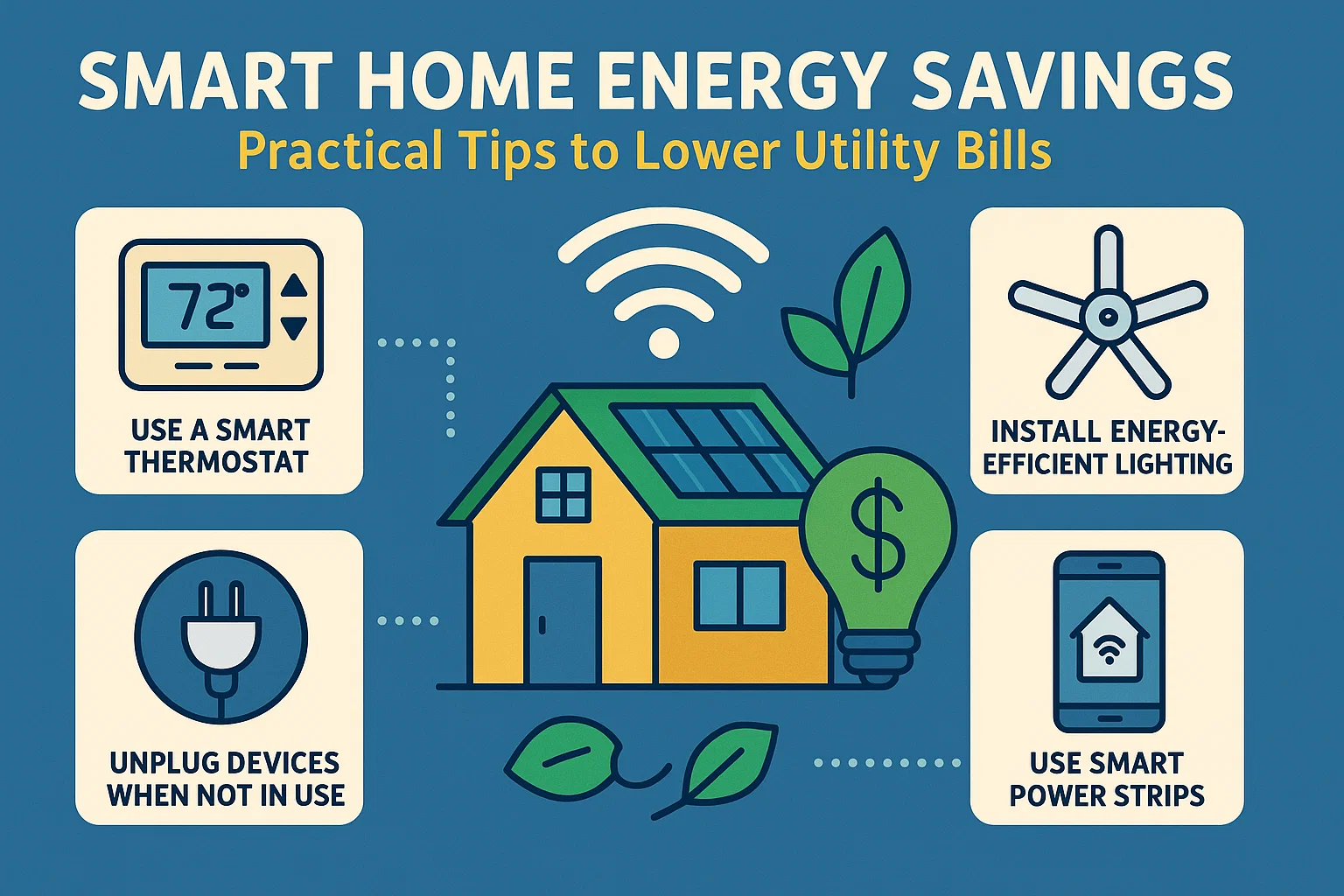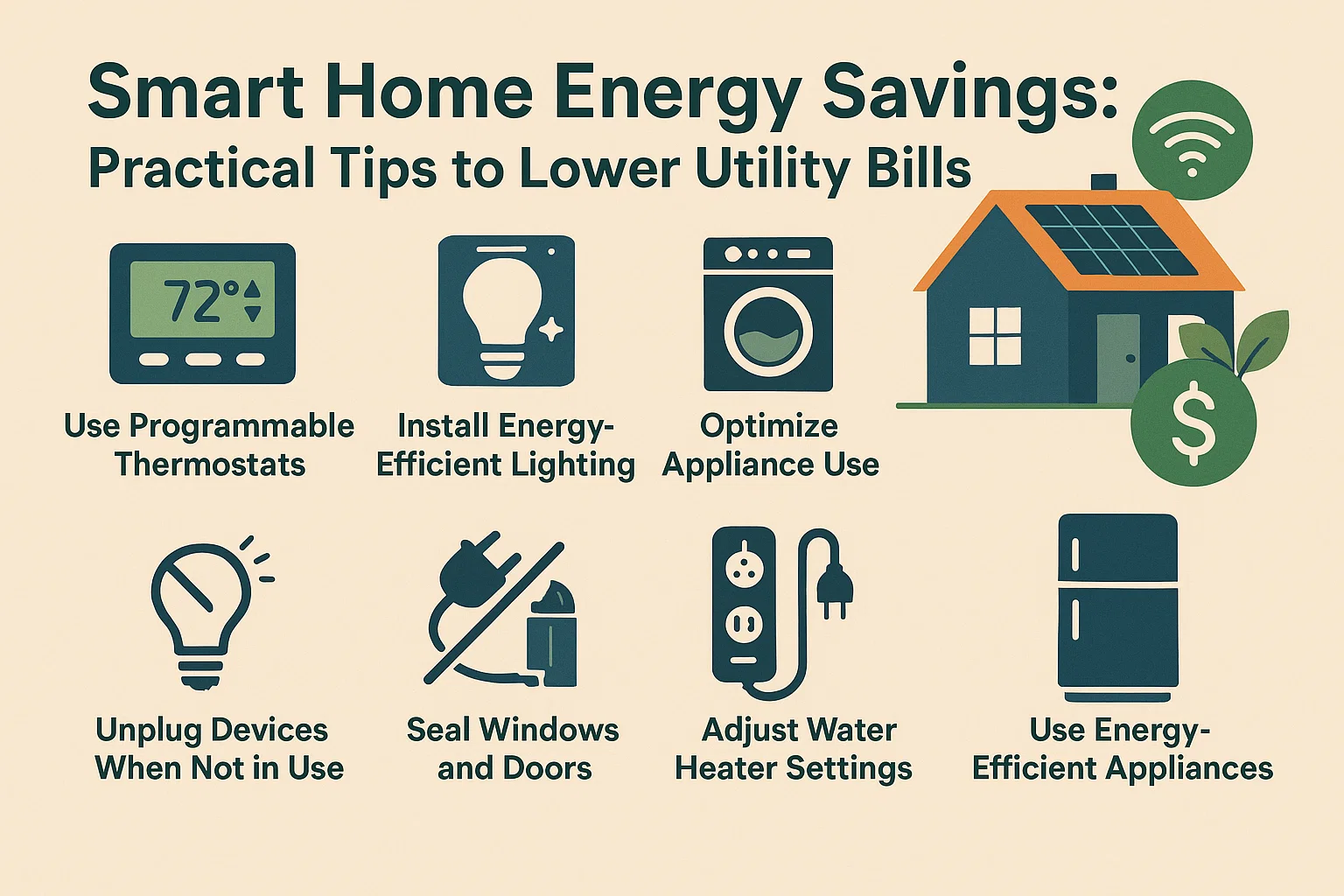Smart Home Energy Savings: Practical Tips to Lower Utility Bills

Smart Home Energy Savings: Practical Tips to Lower Utility Bills
Owning a home comes with significant expenses, and monthly utility bills can quickly become a source of stress. Fortunately, adopting energy-saving habits and making small adjustments around your home can lead to meaningful reductions in your energy costs. Heating, cooling, and water heating systems often account for over 50% of household energy use, so optimizing these systems is a great starting point. Below are actionable strategies to help you save.
Focus on Heating and Cooling Efficiency
Programmable Thermostats
Install a programmable thermostat to adjust temperatures automatically when you’re away or asleep. This simple step can save up to $150 annually. For even greater savings, set your thermostat a few degrees higher in summer and lower in winter.
Maintain Your HVAC System
Replace furnace filters regularly to prevent clogs and ensure efficient operation. Dirty filters force your system to work harder, increasing energy use and costs.
Seal Leaks
Inspect doors, windows, and vents for drafts. Sealing gaps prevents air leaks, reducing the workload on your HVAC system.
Use Curtains Strategically
Open curtains during winter days to let sunlight warm your home, and close them at night to retain heat. This reduces reliance on heating systems.
Upgrade Appliances and Electronics
Energy Star Appliances
Replace older refrigerators, dishwashers, and laundry machines with Energy Star-certified models. These appliances use less energy, lowering your electricity bill over time.
Optimize Water Heating
Set your water heater to 120°F. Lowering the temperature by 10°F can save $12–$30 annually.
Smart Laundry Habits
- Wash clothes in cold water to avoid heating costs.
- Air-dry laundry when possible to reduce dryer use.
Efficient Cooking
Use microwaves or toaster ovens instead of conventional ovens for reheating food. They consume far less energy.
Small Changes, Big Savings
Lighting Upgrades
Switch to LED or CFL bulbs, which use up to 75% less energy than traditional bulbs. Turn off lights in unused rooms for added savings.
Unplug Idle Electronics
Devices like TVs, chargers, and computers draw power even when idle. Unplug them or use smart power strips to eliminate “phantom” energy use.
Mindful Energy Use
Turning off a computer when not in use can save around $75 yearly. Apply this habit to all electronics to maximize savings.
Final Thoughts
Not every tip will fit every household, but combining even a few of these strategies can lead to noticeable reductions in your energy bills. Start with the changes that align with your lifestyle, and gradually incorporate more habits to build long-term savings.




